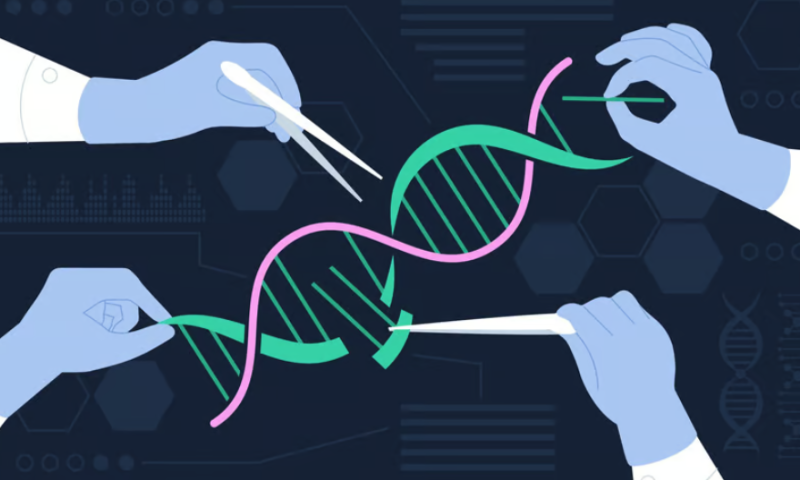After receiving the FDA greenlight for its sickle cell disease (SCD) gene therapy, Vertex Pharmaceuticals is paying up to $100 million—plus potential licensing fees—for rights to Editas Medicines’ Cas9 gene-editing tech, a deal that encompasses freshly approved Casgevy.
Under the new deal, Vertex secures non-exclusive licensing rights to Editas’ Cas9 tech for ex vivo gene-editing medicines targeting the BCL11A gene in SCD and beta thalassemia, including CRISPR Therapeutics-partnered Casgevy (exagamglogene autotemcel), which just nabbed FDA approval Dec. 8.
Besides receiving $50 million in upfront cash, Editas is eligible to receive another $50 million through a contingent payment. Editas didn’t disclose what would trigger the other $50 million payment.
The biotech also has the chance to receive yearly licensing fees ranging from $10 to $40 million per year through the patent’s expiry in 2034, an Editas spokesperson told Fierce Biotech via email.
The payment is part of a long-running legal battle brought by two universities and one of the founders of the gene-editing technique, Nobel Prize winner Emmanuelle Charpentier, Ph.D. Alongside fellow Nobel Prize laureate Jennifer Doudna, Ph.D., Charpentier created a type of genetic scissors that can be used to cut any DNA molecule.
This was dubbed CRISPR/Cas9 and has been used to create gene-editing therapies by dozens of biotechs, including Editas, which licensed the tech from the Broad Institute of MIT.
Last February, the U.S. Patent and Trademark Office ruled in favor of the Broad Institute of MIT and Harvard over Charpentier, the University of California, Berkeley and the University of Vienna. After that decision, Editas became the exclusive licensee of certain CRISPR patents for developing human medicines, including a Cas9 patent estate owned and co-owned by Harvard University, Broad Institute, the Massachusetts Institute of Technology and Rockefeller University.
Now, Editas will send a portion of the payments from Vertex to the Broad Institute and Harvard, according to Dec. 12 documents filed with the Securities and Exchange Commission.
The legal battle isn’t over yet, though, with Charpentier and two universities officially appealing the decision last spring.
“The interference proceeding in front of the Federal Circuit is moving forward as expected,” the Editas spokesperson said. “We are waiting for the oral argument to be scheduled and we expect the oral argument will be scheduled early next with a decision following mid-next year.”
The non-exclusivity aspect of the Editas-Vertex deal means the agreement only covers using the BCL11A gene. New deals would have to be made for other uses.
Though the long-term fate of the patents remains unclear, Editas benefits immediately from the Vertex payments, with the deal pushing the biotech’s cash runway into 2026. As of the company’s Q3 financial results, Editas previously had enough money to take it into the third quarter of 2025.
“We are pleased with the financials—the upfront payments extending our cash runway into and ensuring this game-changing technology can reach more patients in need of transformative medicines,” the Editas spokesperson said.
The deal comes after the FDA approval of not one but two gene therapies to treat SCD—Vertex’s and CRISPR Therapeutics’ Casgevy and bluebird bio’s Lyfgenia (lovo-cel). The therapies are long-awaited treatments for the debilitating and life-threatening disease that affects more than 100,000 Americans, most of them Black.
This leaves Editas with the tough task of differentiating its own SCD candidate, dubbed renizgamglogene autogedtemcel (reni-cel), from the two approved treatments.
The gene-editing biotech has bet a lot on reni-cel, clearing out the majority of its pipeline earlier this year to focus its efforts on the investigational medicine amid unrelenting difficult market conditions.
Faced with the likelihood of an exa-cel approval, many other companies—such as Graphite Bio, Sangamo Therapeutics and Intellia-partnered Novartis—shelved their own SCD candidates. In contrast, Editas doubled down on reni-cel, previously dubbed EDIT-301, by funneling more cash into the program to accelerate its trial.
On Dec. 11, the Massachusetts-based biotech shared new data from two separate phase 1/2 trials assessing reni-cel among patients with severe SCD or transfusion-dependent beta thalassemia (TDT) at the 65th American Society of Hematology Annual Meeting and Exposition.
The gene-editing biotech assessed reni-cel in 11 patients with SCD and six patients with TDT and found that the ex vivo asset showed a safety profile consistent with myeloablative conditioning with busulfan and autologous hematopoietic stem cell transplant. No serious adverse events tied to reni-cel were reported.

